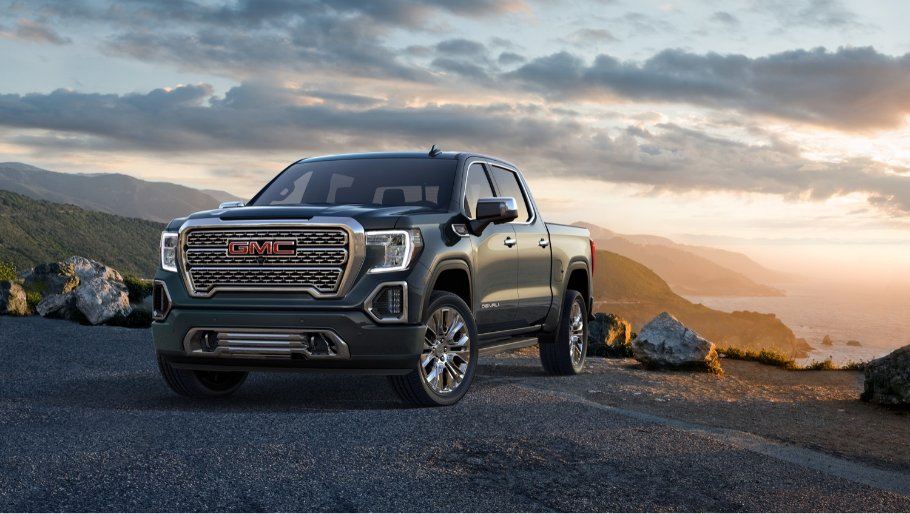What Is the GM SUV and Truck Recall About?

The Core Issue: Engine Failure Risk
The recall targets vehicles equipped with the 6.2L V8 L87 gasoline engine, which may contain defective connecting rods or crankshaft components. These parts are critical to engine function, and flaws can lead to:
- Engine knocking or banging
- Sudden loss of propulsion
- Check engine light activation
- Abnormal shifting or high RPMs
- Complete engine failure
According to GM and the National Highway Traffic Safety Administration (NHTSA), these issues can increase the risk of a crash.
Which Models Are Affected?
The recall spans model years 2021 through 2024 and includes the following vehicles:
Cadillac
- Escalade
- Escalade ESV
Chevrolet
- Silverado 1500
- Suburban
- Tahoe
GMC
- Sierra 1500
- Yukon
- Yukon XL
In total, the recall affects:
- 126,027 Cadillacs
- 174,208 Chevrolets
- 297,395 GMCs
Why This Recall Matters for Used Vehicle Buyers
1. Safety Concerns
Engine failure while driving can be dangerous. If you're buying a used GM SUV or truck, you need to ensure the vehicle has been inspected and repaired if necessary.
2. Resale Value
Vehicles with unresolved recalls may have diminished resale value. Buyers should factor this into negotiations.
3. Warranty and Repair Costs
GM is offering free inspections and repairs for affected vehicles. In some cases, engines will be replaced entirely. Vehicles that pass inspection will receive an oil change with higher-viscosity oil and new filters
How to Check If a Vehicle Is Affected
Before purchasing a used GM SUV or truck, follow these steps:
- Get the VIN (Vehicle Identification Number) from the seller.
- Visit the NHTSA Recall Lookup Tool at nhtsa.gov/recalls.
- Enter the VIN to see if the vehicle is part of the recall.
You can also contact:
- Chevrolet Customer Service: 1-800-222-1020
- GMC Customer Service: 1-800-462-8782
- Cadillac Customer Service: 1-800-458-8006
What Should Buyers Ask Sellers?
When evaluating a used GM SUV or truck, ask these key questions:
1. Has the vehicle been inspected for the recall?
- Expected Answer: Yes, with documentation from a GM dealership.
- Follow-up: Can I see the service records?
2. Was the engine repaired or replaced?
- Expected Answer: If the vehicle failed inspection, the engine should have been replaced.
- Follow-up: Is there a warranty on the new engine?
3. Are there any remaining recalls?
- Expected Answer: No, if the vehicle is up to date.
- Follow-up: Can you provide a recent recall report?
What If You Already Own an Affected Vehicle?
If your vehicle is among those recalled:
1. Schedule an inspection at a GM dealership. 2. Listen for warning signs like knocking or hesitation. 3. Avoid long trips until the vehicle is cleared or repaired.
GM has stated that vehicles passing inspection will receive extended warranty coverage on the engine
Tips for Buying a Used GM SUV or Truck in 2025
Do Your Homework
Use the VIN to check for recalls, service history, and accident reports.
Buy from Reputable Dealers
Certified pre-owned (CPO) vehicles are more likely to have completed recall repairs.
Request a Pre-Purchase Inspection
Have a trusted mechanic inspect the vehicle, especially the engine.
Negotiate Based on Recall Status
If the vehicle hasn't been inspected or repaired, use that as leverage in price negotiations.
Other Common Questions Buyers Might Have
Q: Will this recall affect insurance rates?
A: Not directly, but unresolved recalls can impact claims if an accident is linked to the defect.
Q: Can I still drive the vehicle if it's under recall?
A: Yes, but it's not recommended until it's inspected. Engine failure can occur without warning.
Q: What if the seller refuses to provide recall documentation?
A: Walk away. Transparency is key when buying a used vehicle.
Conclusion
The used GM SUV and Truck recall is a serious issue that affects some of the most popular full-size vehicles on the market. Whether you're a current owner or a prospective buyer, staying informed is essential. By understanding the risks, checking recall status, and asking the right questions, you can make a safe and smart purchase.
Image Source: Google Images







